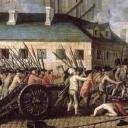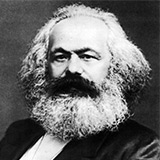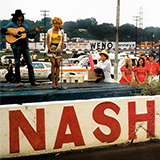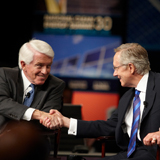
Booked: Is It Time to Retire the Term “Revolution”?
An interview with historian David A. Bell about his new book on the French Revolution.


An interview with historian David A. Bell about his new book on the French Revolution.

It took a gruesome attack for Pakistani authorities to recognize extremist activity in the country’s most populous province. But an incoherent counter-terrorism policy only threatens to make the problem worse.

Any serious effort to keep global warming below catastrophic levels requires an unprecedented challenge to the fossil fuel industry from the grassroots. It also requires a vision of what the post-fossil future will look like.

Sociologist, leading democratic socialist, and longtime Dissentnik Bogdan Denitch passed away last Monday at the age of eighty-six.

Politicians like Lula and Rousseff should neither be above the law nor prosecuted outside it. As Brazil weathers corruption scandals and a democratic crisis, history reminds us that ignoring due process carries grave dangers.

Debates between socialists and liberals are not new. But nor, perhaps, are they completely irreconcilable. [From the archives]

As China’s economic prospects darken, headlines worldwide accuse China’s leaders of threatening global capitalism. Once upon a time, that was precisely the point.

When Nashville was anointed the capital of country music, a true American icon was born.

Business conservatives have demonized every piece of progressive legislation as “creeping socialism” since the 1930s. Now that a democratic socialist has called their bluff, they’re at a loss.

Kamel Daoud’s Meursault, contre-enquête is complex and irreverent, scorning both colonialism and Eurocentrism as well as postcolonial dreams of national liberation and clerical authority.

The danger of Trump is that he is completely removing the norms of public discourse—the same norms that have served to hold in check those unwilling to see their society transformed by greater equality and liberty.

In Oxnard, the largest city along California’s Central Coast, an immigrant community is winning the fight against what could be the state’s last fossil fuel power plant.

Bernie Sanders’s plan for higher education would go a long way toward improving graduation rates, raising incomes, and lowering unemployment among millennials—African Americans and Latinos most of all.

Title VII of the 1964 Civil Rights Act made it illegal for employers to discriminate “because of sex.” We talk with Gillian Thomas, author of a new book on the history of the Supreme Court’s rulings on that little phrase, which have shaped the experiences of millions of working people.

“Zippy” creator Bill Griffith’s new book Invisible Ink is a curious masterpiece, merging the real-life personal saga of his mother with the story of the forgotten pulps.